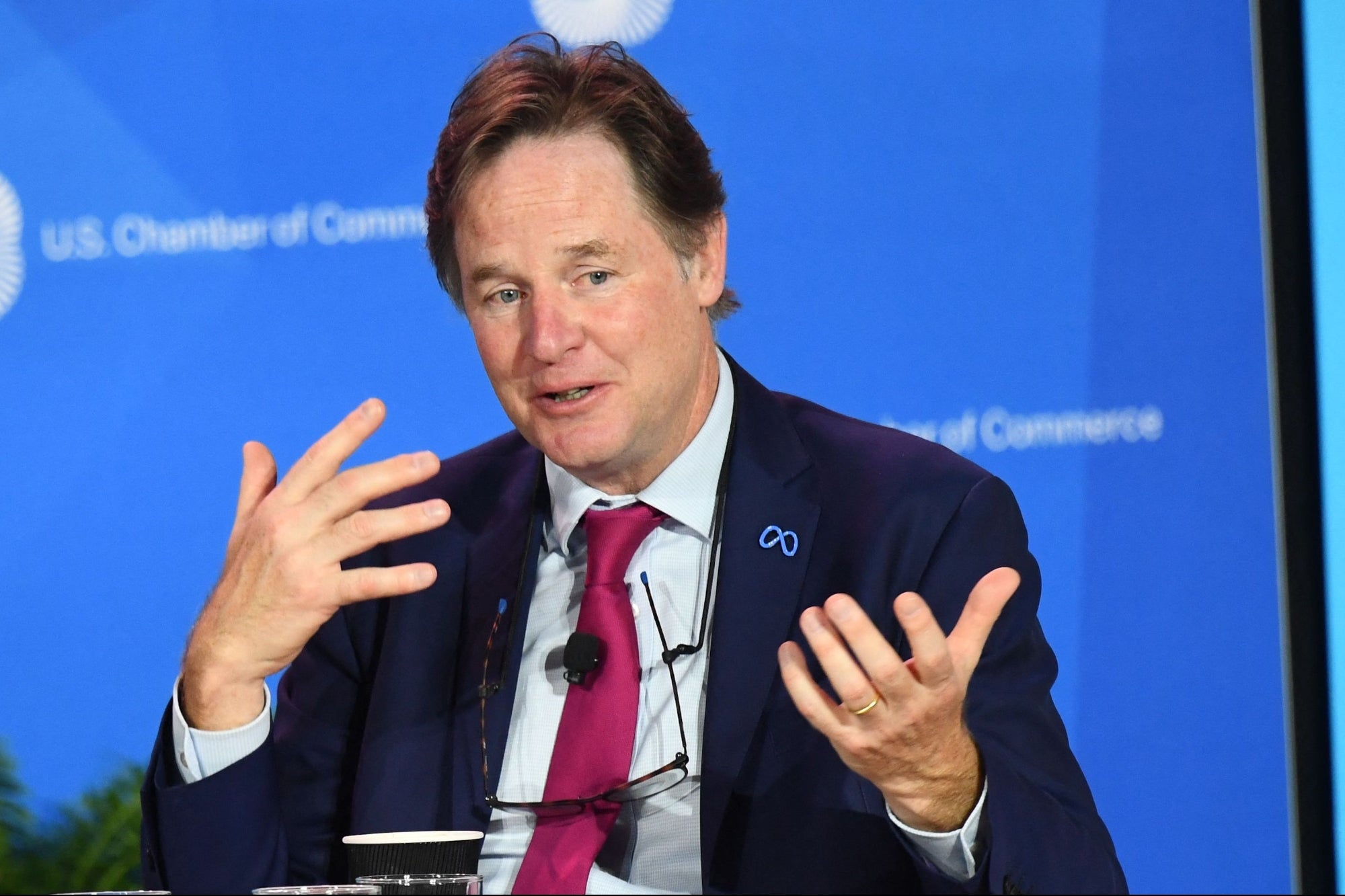A Top Meta Executive and Former UK Deputy Prime Minister Was 'Inadvertently' Revealed to Be a 'John Doe' in OnlyFans Bribery Lawsuit The names of "certain third parties who have legitimate privacy interests" were accidentally not redacted, attorneys said.
Opinions expressed by Entrepreneur contributors are their own.

In a motion 'inadvertently' filed on Tuesday, it was revealed that Nick Clegg — Meta's president of global affairs and former deputy prime minister of the UK — is one of the executives named in an ongoing lawsuit that contends Meta and OnlyFans were conspiring to de-platform competing creators.
Lawyers for OnlyFan's parent company, Fenix International, were the ones who had filed the motion by accident in California's Northern District Court. Gizmodo first reported the news.
Previously "names of certain third parties who have legitimate privacy interests" were accidentally not redacted, Fenix's attorneys said.
They quickly moved to file a (successful) motion to re-seal it, according to Law360.
Fenix's motion was to dismiss an ongoing lawsuit between three adult content creators against Meta and OnlyFans.
Three women, Dawn Dangaard, Kelly Gilbert, and Jennifer Allbaugh, claim the companies conspired to make their content less visible — as well as a heap of other online creators who work with paid platforms besides OnlyFans.
The women claimed people "with high positions at Meta" took bribes from OnlyFans to lower engagement on posts from creators using platforms of OnlyFans competitors.
The accidentally-filed motion revealed those people to be: Clegg, Nicola Mendelsohn, the VP of Global Business Group at Meta, and Cristian Perrella. Perrella appears to be "Cristian P," a safety director for Meta based in London on LinkedIn, per Law360.
Previously, the named Meta executives had been referred to as John Doe.
Instagram, Facebook, Meta, Fenix, and Fenix's owner are named as defendants in the suit, but Clegg, Mendelsohn, and Perrella are not.
Often, adult entertainers and content creators of all stripes garner large audiences through mainstream social media platforms like TikTok or Instagram. Then, they funnel as many fans as they can into platforms that pay creators directly (and more lucratively), like Patreon or OnlyFans.
The women have claimed the companies flagged their accounts as containing terrorist-related content, resulting in a decline in engagement, also known as "shadowbanning," a concept people claim happens when a social media company doesn't outright ban or suspend your account but makes your content less visible.
The women have cited anonymous sources as evidence for this claim.
They first sued in February but had to re-file in September after the judge said the lawsuit was not detailed enough, per Law360.
Last week, attorneys for the women introduced new evidence, claiming an anonymous tip showed the Meta employees received payments via wire transfer from a representative of OnlyFans, according to Gizmodo. Those documents are still sealed.
Meta told Gizmodo the accusations are "baseless" and "lack facts, merit, or anything that would make them plausible."
In an exchange on September 8, Judge on the case William Alsup asked an OnlyFans lawyer to deny the women's allegations, which he did not.
I'd also like to add this Sept 8 transcript to the public record since it's unavailable right now on Pacer: https://t.co/Y00ZcpPUNK
— dell cameron (@dellcam) October 12, 2022
This exchange between Judge Alsup & OnlyFans attorney (O'Sullivan) is something. pic.twitter.com/O2S9TlNTCv
Currently, OnlyFans and Meta are trying to get the complaint dismissed.
Lawyers for Meta have also argued that even if they were true, the company would not be liable because the employees were not acting on behalf of the company, Gizmodo noted.











